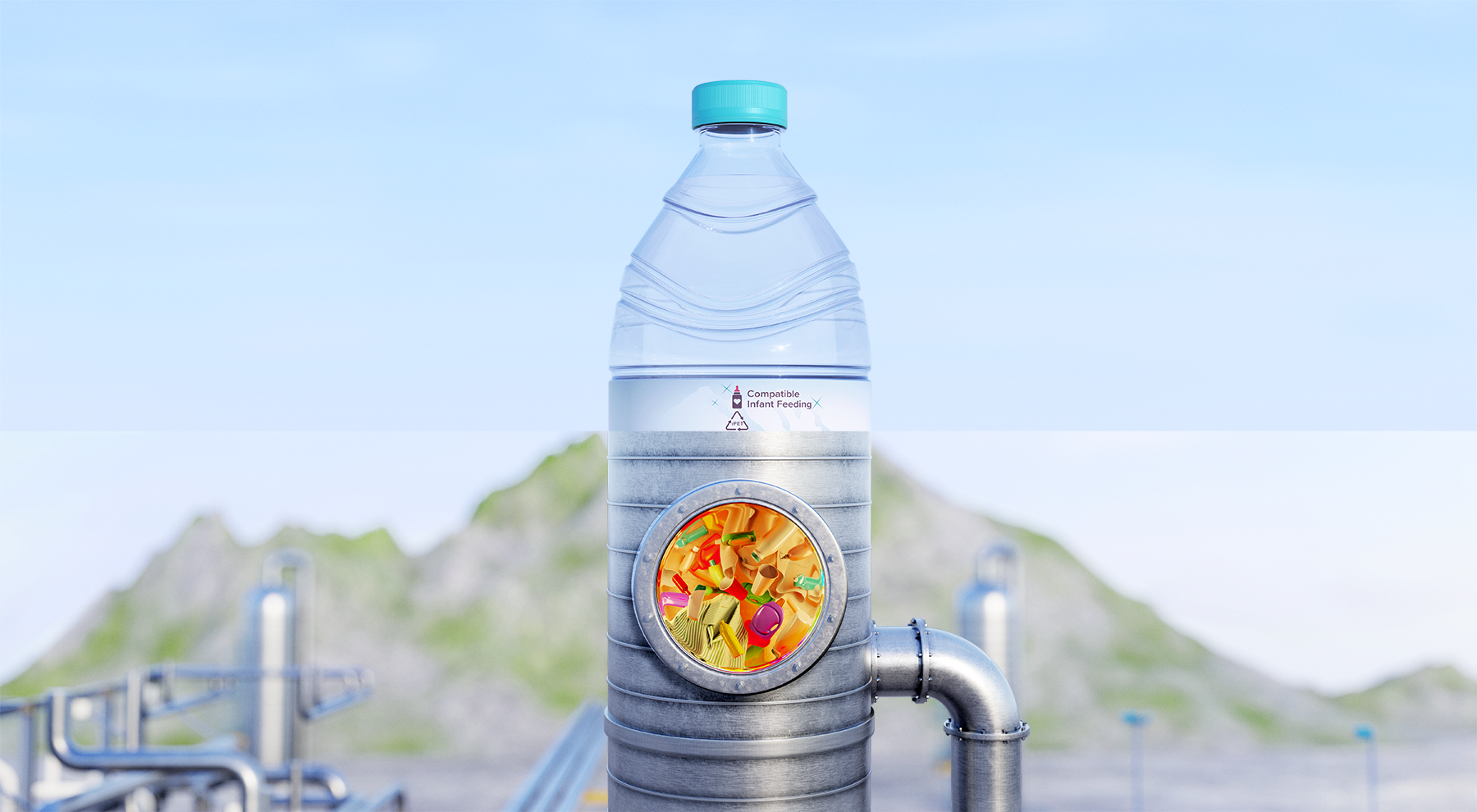
Considering the amounts of worldwide plastics consumed, their recycling represents a significant lever to limit the impact on environment. The plastic circularity includes both mechanical and chemical recycling, the second one being complementary to the first one.
The unique qualities of plastics make it essential for our lifestyles and many industrial sectors. Their strength-to-weight ratio associated with their high resistance to physical and chemical degradation, to name only a few, explains the relevance of this material and their growing demand.
This very same resilience of the plastics worsens the quantities of waste remaining in the environment for decades and even centuries.
Today, less than 9% of plastic waste is being ultimately recycled, one knows where the effort must be made. Moreover, some new habits developed during periods of lockdown have led increased single-use waste. Most of the recycled polymers are produced today through mechanical recycling process leading very often to the use of the polymer on a different non-circular application.
The chemical recycling now exists to complement the mechanical recycling and unlatch production of recycled plastics for most demanding applications (such as food grade or medical used).
To achieve a true circular plastics economy, the products obtained from chemical recycling should be used for the same initial products, and even in higher-value products, this latter being known as upcycling. A telling example is textiles recycling into bottles of mineral water.
Axens is currently proposing unique and de-risked technologies to recover end-of-life plastics, thus creating a circular loop.
Axens and IFPEN have applied their long-standing expertise in chemical, catalysis and process engineering to develop several chemical recycling solutions for plastics, always targeting the shortest recycling loop and optimum Life Cycle Analysis (LCA) to process all the plastic waste that cannot be recycled mechanically.
It converts mixed, contaminated end-of-life plastics into optimized petrochemical feedstocks that can be further cracked and processed to produce new high-quality plastics.
|
Axens is in a position to propose complete advanced recycling technologies flexible to different business models, enabling centralized or decentralized systems, leveraging the proven Plastic Energy Thermal Anaerobic Conversion (TAC) process and the Rewind® Mix purification technology. |
It turns end-of-life difficult to recycle waste PET-based plastics (multi-layer packagings, trays, textiles, etc.) into monomers that can be re-polymerized into high-value PET-based products (food-contact applications).
|
Axens, with IFPEN and JEPLAN - Company that has operated the first ever-industrial PET bottles chemical recycling plant, called PET Refine Technology, in Japan, are putting together their operating, engineering and technological background and will accelerate the development and the construction of the first industrial demonstration plant of JEPLAN. |
Axens, as a world leader in process licensing with more than 3,000 units under license and covering the entire value chain from feasibility studies to unit follow-up, is among the most legitimate to conceive these technologies up to maturity and ready to be deployed and to accompany the customers.
Even in the most optimistic scenarios, the plastics demand will exceed circular carbon supply. Consequently, there is a lack to overcome: that polymer demand gap can be supplied through monomers produced from sustainable feedstocks.
The renewable (bio-sourced) technologies complete the response facing the urgency of the biodiversity loss and climate change also by the concomitant effect of the substitution of fossil feedstocks by biomass decreasing the greenhouse gases emissions.
More information about Axens solutions to convert biomass into high-quality and low-carbon alternative products for the transportation sector and chemical industry: Click here

After 15 years in refining and petrochemical production, I took part in the emergence of the plastic recycling adventure at Axens in 2019. I am now involved in the development of the plastic recycling technologies.
My previous experiences in plant design, start-up and troubleshooting, and in technology development and improvements are the basis of my contribution to the development of new chemical recycling technologies.
My first commitment is to provide reliable, cost-effective, flexible and efficient units to our future customers.